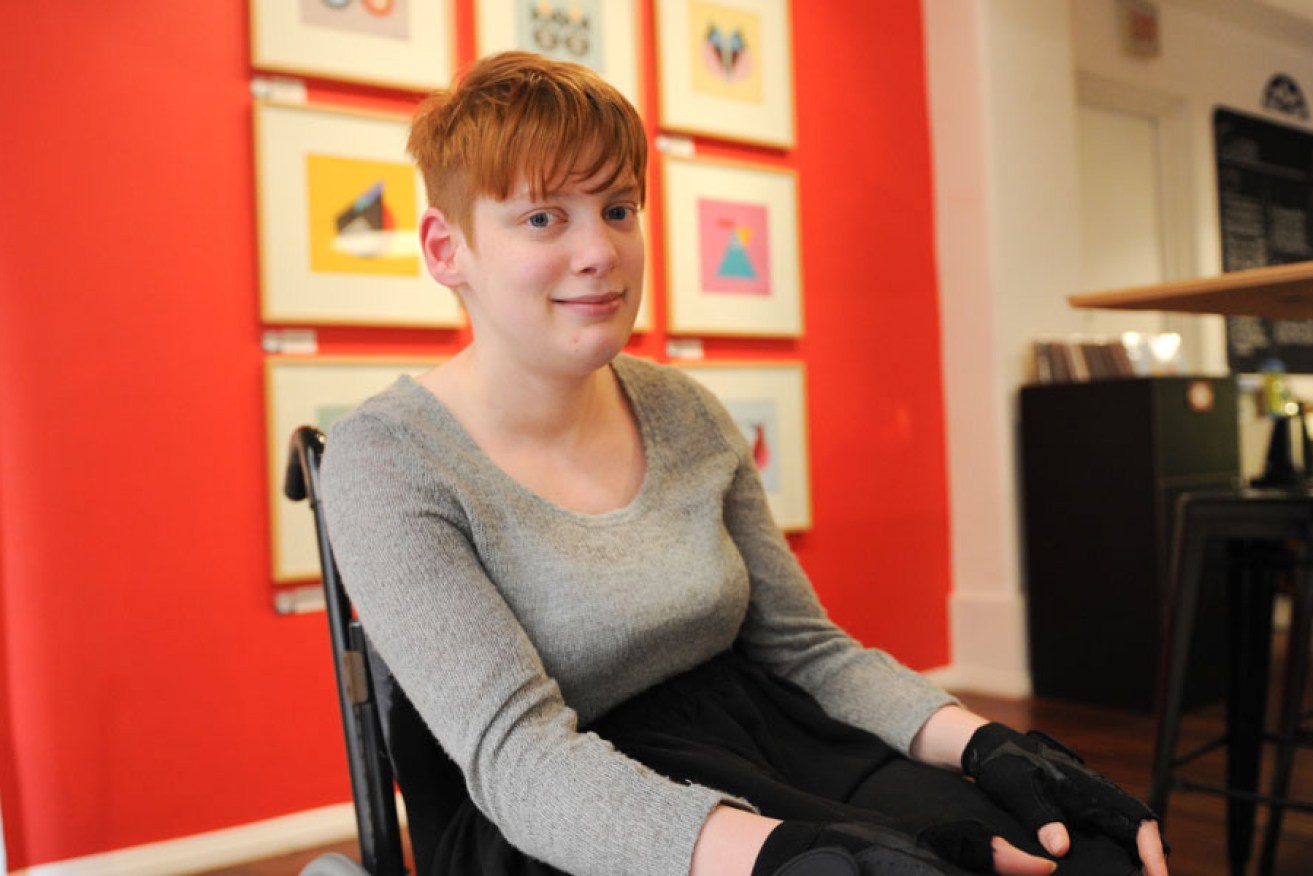Disabled fed ‘poor’ food in supported care

Kelly Vincent is concerned about the quality of food provided in supported residential facilities. Photo: Nat Rogers/InDaily
Poor quality food provided to disabled people is raising levels of obesity and must be improved, say disability advocates.
Dignity for Disability MLC Kelly Vincent is calling for the State Government to take over supported residential facilities from local government – in part to stem the increasing obesity problem.
SRFs can struggle with low budgets and Vincent says food is one of the first places cost-cutting takes place.
“Dignity for Disability is concerned that the current regulatory regime for Supported Residential Facilities (SRFs) means poor quality food is provided to residents,” Vincent said.
“Rather than local government just checking that the food isn’t a food poisoning risk, we need to see State Government licensing and regulating SRFs so that healthy, nutritious food choices are served to residents.”
Diabetes educator Jayne Lehmann also believes action is needed now to prevent obesity and diabetes in disabled care.
“Where I can see things aren’t going right for this group they aren’t given information about the benefits of not being overweight in a way that they can understand,” Lehmann said.
“Previously it was a lot of nurses looking after people with a disability; now increasingly it’s a lower level of training with those nurses being replaced by support workers.”
She said food cooked by support workers was the biggest issue – with concerns about low health literacy in support workers.
“Often food cooked is high fat, equally they may be getting a lot of takeaway. They might get white bread and they may have never been exposed to a fresh range of fruit or vegetables.
“Equally there is no consistency in what is being prepared as it somewhat depends on what the person wants to cook – not what they people want to eat.”
Lehmann said one intellectually disabled man she had worked with could not identify a kiwi fruit because he had never seen or tasted one before.
“Because these people don’t even get to go shopping there’s a lot of cheap food supplied or [the support workers] are lacking the imagination to give people with disability the choice we take for granted.”
In Australia people with a disability are more likely to be overweight or obese – 69 per cent compared with 58 per cent in a 2010 Australia Institute of Health and Welfare study.
Likewise, six to seven-year-old Australian children with developmental delay are more likely to be obese than their typically developing peers.
This is because of a number of factors including a higher prevalence of Prader-Willi disorder which causes a person to feel hungry all the time, side effects of medication, lack of nutrition education and low socioeconomic status.
“Management of weight and obesity issues for people with intellectual disability is made difficult as many doctors and other health professionals have minimal understanding of the diverse nature of disability,” Vincent said.
She said university courses including medicine, nursing, education, health sciences and disability studies should examine disability, nutrition and chronic illness issues.
“Poor food choices can lead to obesity, diabetes and increased risk of heart disease and cancer – as with the rest of the population, we want to prevent these health problems in people with disabilities.
“If the State Government is prepared to support healthier food for people with mental illness and intellectual disability in residential care or SRFs, they will save money on chronic illness expenditure in the health budget in the longer term.”
Lehmann agreed that it was not clear if disability or health services should take responsibility with both sides having limited understanding of the other. “It’s kind of like blindfolding both groups of people.”
Lehmann said it was also important people with intellectual disabilities were aware of what a healthy diet includes, as well as the importance of exercise.
“The other issue around obesity is that people forget to include activity in a person’s plan, in their life plan, their support plan. So people get used to not exercising.”
A specialist diabetes nurse, Lehmann also has a daughter with an intellectual disability. She has produced material to help overcome the lack of adequate information to support people with low health literacy.
Vincent agreed education was important.
“Dignity for Disability is keen to ensure there are audience-appropriate education programs put in place in all special schools and day options program in South Australia to ensure people with intellectual disability are given the skills and knowledge necessary to purchase, prepare and eat a healthy diet.
“Often people with disabilities and/or with mental illness are taking medication that can make it difficult to maintain a healthy weight – programs and supports need to be out in place to make nutritious food choices possible.”




